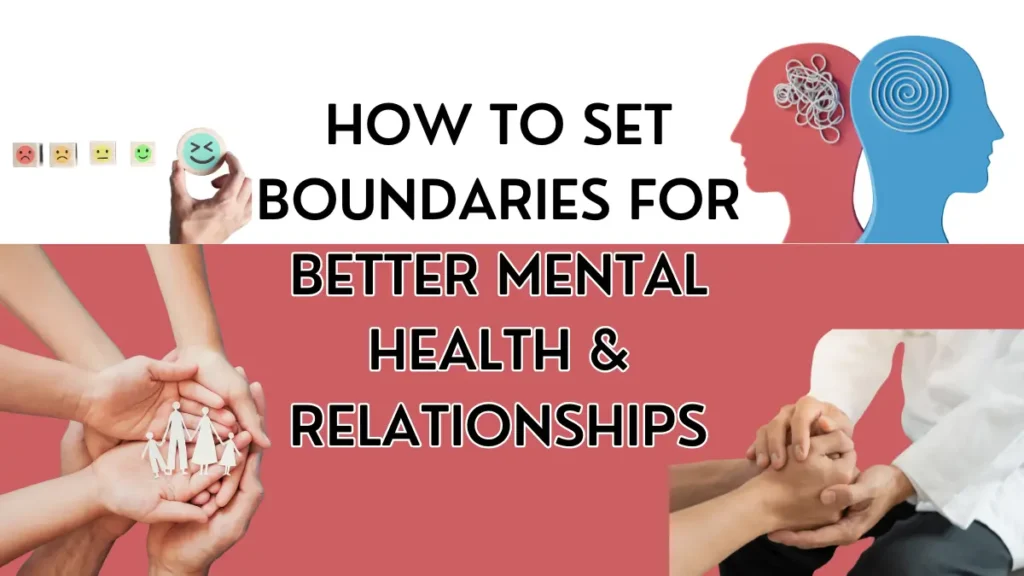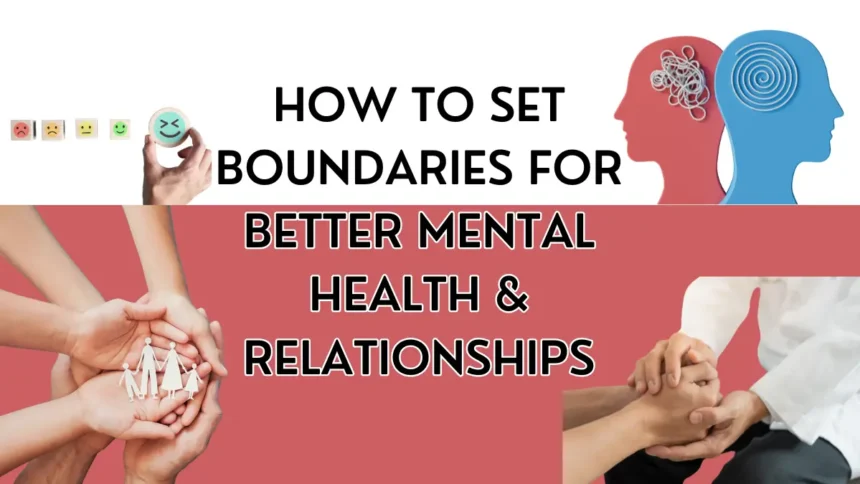Better Mental Health & Relationships
Do you ever feel drained after spending time with certain people? Or find yourself saying “yes” when you really mean “no”? If so, you’re not alone. Many of us struggle with setting boundaries, fearing we’ll come across as rude or selfish. But the truth is, healthy boundaries are essential for mental well-being and stronger relationships.
In this post, we’ll explore why boundaries matter, how to set them with confidence, and practical tips to maintain them without guilt. Let’s dive in!

Why Boundaries Are Essential for Mental Health & Relationships
Boundaries aren’t about building walls—they’re about creating mutual respect. Without them, we risk burnout, resentment, and emotional exhaustion. Here’s why they’re so important:
- Protects Your Mental Health: Constant people-pleasing leads to stress and anxiety. Boundaries help you prioritize self-care.
- Improves Relationships: Clear limits prevent misunderstandings and foster healthier connections.
- Boosts Self-Esteem: Saying “no” when needed reinforces self-worth and confidence.
How to Set Boundaries: A Step-by-Step Guide
1. Identify Your Limits
Before setting boundaries, recognize what drains you. Ask yourself:
- What situations leave me feeling exhausted or resentful?
- What behaviors do I find unacceptable?
Journaling can help uncover patterns where boundaries are needed.
Video Credits
2. Communicate Clearly & Kindly
Be direct but compassionate. Instead of:
❌ “You always overwhelm me with your problems!”
Try:
✅ “I care about you, but I need some time to recharge before we talk about heavy topics.”
3. Start Small
If setting boundaries feels intimidating, begin with low-stakes situations. For example:
- “I can’t take on extra work this week, but I’d be happy to help next month.”
- “I need some quiet time in the evenings, so I won’t be answering calls after 8 PM.”
4. Stand Firm Without Guilt
People may push back—especially if they’re used to you always saying “yes.” Remind yourself:
- You’re not responsible for others’ reactions.
- Saying “no” doesn’t make you a bad person.
5. Practice Self-Enforcement
Boundaries only work if you uphold them. If someone repeatedly disrespects your limits, you may need to:
- Reiterate your boundary.
- Limit contact if necessary.
Common Boundary Challenges (& How to Overcome Them)
1. Fear of Conflict
Many avoid boundaries to keep the peace. But avoiding conflict often leads to bigger issues later. Instead:
- Use “I” statements (“I feel overwhelmed when…”).
- Stay calm and assertive.
2. Guilt About Saying No
Remember: You can’t pour from an empty cup. Prioritizing yourself isn’t selfish—it’s necessary.
3. Pushback from Loved Ones
If someone reacts negatively, stay consistent. Over time, they’ll adjust. If they don’t, reevaluate the relationship.
Boundaries in Different Relationships
With Family
- “I love you, but I need space to make my own decisions.”
- “Let’s avoid discussing politics during dinner.”
With Friends
- “I’m not in a place to give advice right now, but I’m here to listen.”
- “I can’t make it this weekend, but let’s plan something soon.”
At Work
- “I’m unavailable after 6 PM unless it’s an emergency.”
- “I’d love to help, but my current workload doesn’t allow it.”
Final Thoughts: Boundaries = Self-Respect
Setting boundaries isn’t easy, but it’s a game-changer for mental health and relationships. Start small, stay consistent, and remember—you deserve to feel respected and valued.
Your Turn: What’s one boundary you’ll set this week? Share in the comments below!











